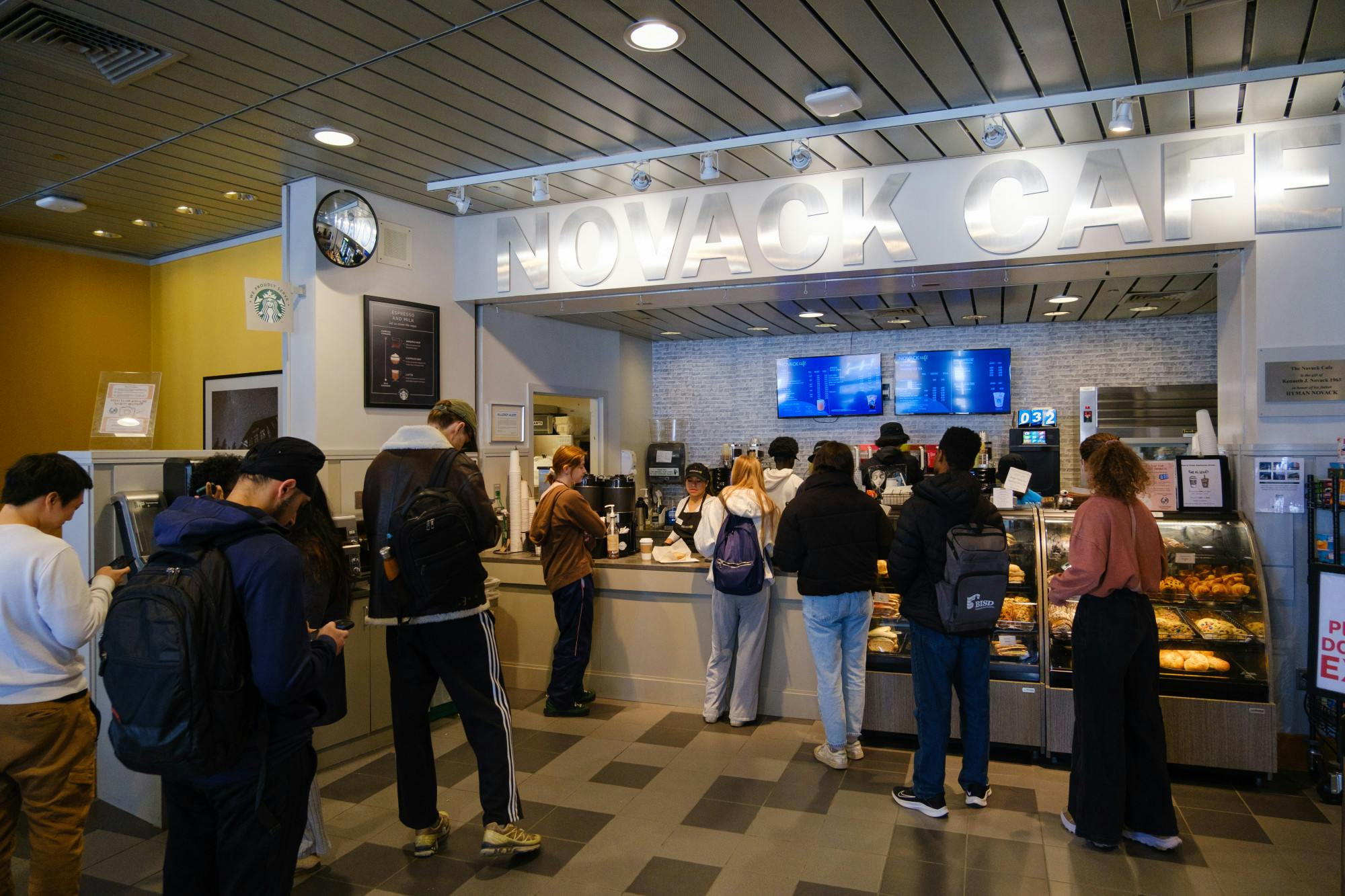On April 2, Dartmouth Student Government announced in a campus-wide email that The Fern Coffee & Tea Bar, Novack Cafe and Ramekin are participating in a new reusable cupware initiative. Students are now able to “use reusable mugs and tumblers” to buy drip coffee, hot tea and iced coffee at these locations, and every 10th student to do so will receive their drink for free, according to the email.
To support the initiative, DSG also announced a companion social media contest, in which students who post a photo of themselves with their reusable cupware before April 16 will have a chance to win a JBL speaker or a gift card for $25 in dining dollars.
Grade representative Jacob Garland ’25 — who helped lead the initiative — said the idea had been in development for the past two years. The effort originated in 2022 as a group project in the Sustainability Office’s first-year Sustainability Action Program, he explained. Garland said he later worked on developing the program as a paid intern for the office — and on his own time — before eventually bringing it to DSG around halfway through the winter of 2024.
“This effort is a smaller piece of a larger effort to recontextualize how we think about those purchases, where it’s not just money that we’re paying for these kinds of products — there is an inherent social and environmental cost that comes in,” Garland said.
According to Class of 1953 Commons general manager Brandon Crosby, the initiative was piloted at Ramekin and The Fern toward the beginning of the fall of 2023, and its success at those locations led to its implementation at Novack during the beginning of the spring 2024 term.
“It really works well, and there’s some fun involved in it,” he said. “The students like to participate, it’s easy for us to use and it is reducing the amount of single-use containers in our waste by a lot.”
The three cafes offering the reusable option, however, each have differing needs as they operate on largely different staff and receive varying levels of customer traffic, which proved to be a challenge when implementing the program, Garland added.
“[The program had to be] something that worked for the cafe managers and the workers and ideally was still a good incentive for students,” he said. “It definitely took a while to figure out a program that would fit all of those different pieces.”
Crosby said he collaborated with Garland and other students on the development of the project, adding that Dartmouth Dining is likely the “biggest user of single-use items” on campus. Student-led sustainability initiatives, like the Green2Go program, have positively impacted the College in the past, he added.
“We’ve had some very successful student-led initiatives as far as sustainability,” Crosby said. “The more students [that] are involved, the more successful the programs are going to be.”
Sustainability program coordinator Rachel Kent, who advised the development of the initiative, said that Garland’s efforts were an “awesome blueprint …to address these problems.”
“This project has involved a lot of persistence, a lot of going back to the drawing board and pivoting,” Kent said. “I’m really proud to have witnessed that persistence on the part of the students who have been involved.”
Crosby added that everyone on campus should have “a vested interest” in sustainability initiatives like this one.
“The habits that we make now are what are going to carry us in our future,” he said. “The more that we can work together on establishing those habits collaboratively, the better off we’re going to be. I think there are things that we all have to do to be sustainable.”
Garland said he hopes the reusable cup initiative can spark a “cultural shift” on campus, leading to more of a focus on how our actions impact society at large.
“If we become more mindful of when we’re using plastic cups, and we change those behaviors, that may help to change our perspective when it comes to larger societal consumption,” Garland said.
Kent added student action is important to precipitate larger change, as smaller actions taken together can become a “collective” with even more power to address climate change.
“While reducing single use mugs or tumblers on this campus is a small step, it’s actually happening in a much broader ecosystem of accelerated climate action, and that’s a cause for real hope,” Kent said.




